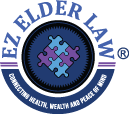
Ideally, health care providers do the right thing. Good Care is provided. There is no negligence. But what if they don’t do the right thing? What if they are negligent? Should you have the right to consider your options regarding how to hold them accountable? Over the past two decades, many long-term care providers, especially […]



